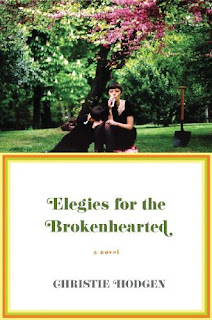I'm one of the readers who rarely would read the same book twice. In fact when I finish a book, I'll generally give it to a friend or family member, or donate it it the library......but like everything else there are exceptions. Today's Friday Finds, I decided to feature (2) books that I have read twice, and I still have the books for a possible third read...crazy huh? Also, (1) book for consideration that I have not read yet.
The Book of Eve; Constance Beresford-Howe
This book was released in 1973, and is now out of print, but I still have a tattered paperback that I never parted with. I first read this book in the early 1980's; then again around 1990, a few years after my mom passed away. Why? Because in some ways this story reminded me of her life, but sadly she wasn't brave enough to walk away and ended up dying before my father...still unhappy with her self-imposed situation.
From what I remember, Eve was a Canadian woman in her mid 60's who made a life altering decision. Married over 40 years to a miserable and demanding man, on the day she begins to collect her own pension check, she boldly moves out without any warning taking very little with her. She gets herself a place of her own, and in Eves case, this is a basement apartment. Each day she becomes more and more comfortable in her new situation, and she soon realizes that "things" alone don't make for a happy life. .....(for me: time for a refresher once again)
Has anyone ever come across this book?
I think this book was released in 1998, but it was just such an memorable read; great character development and setting.
(amazon)......In 1962 the Marx family of liberal Newton, Massachusetts, is politely discouraged from vacationing at a placid Vermont resort by a thinly veiled response to the innocent inquiry about accommodations, stating that the "guests who feel most comfortable here, and return year after year, are Gentiles." Experiencing her first taste of overt anti-Semitism, 13-year-old Natalie Marx becomes instantly obsessed with the Inn at Lake Devine and the seemingly bigoted family that owns and operates it. Wangling an invitation from friends to stay with them at the inn one summer, Natalie embarks on a humorously enlightening 10-year odyssey, entangling the course of her professional and romantic destiny with the lives of Ingrid Berry, the rigidly implacable proprietor of the inn, and her two naive and attractive sons, Nelson and Kris Berry. Skillfully interweaving the bittersweet narrative with threads of both tragedy and comedy, Lipman displays a healthy amount of empathy and affection for her flawed and slightly eccentric cast of characters.

(I haven't read this one, but saw it at the the librar, and it's now on my TBR list).
amazon......
From the author of the American Book Award-winning Stones for Ibarra (1984): a novel that limns in lapidary prose a story of loss and renewal in a small Mexican village--a town transformed by Americans inadvertently ``into something more beautiful than it is.'' As in an old morality fable--without the moralizing--Doerr tells of four expatriates driven to seek refuge in a place so unfamiliar that its ``otherness'' will be the catalyst that restores them. When ``two irresolute Americans'' arrive in tiny Amapolas, set in the midst of a barren mesa, and together buy ten acres from the local grandee, the villagers observe them with curiosity and tolerance. But recently divorced artist Sue Ames and her unlikely business partner, Bud Loomis (on the run from the Arizona tax authorities), have different reasons for making the purchase: Sue hopes to live there forever, and Bud wants to restore his finances. Realizing, though, that they can't afford their houses unless they subdivide the land, they sell plots to the 79- year-old Ursula Bowles, a recent widow, who was born in Mexico and now wants to regain ``the brilliant patchwork of her never-ending past,'' and her twice-divorced daughter, Fran, who wants a house so that her Mexican lover can visit her. Over a period of five years, houses are built; droughts take their toll; locals in the Americans' employ prosper; and the four Americans begin to change: Sue realizes that she'd been too hasty in divorcing her husband; the now-dying Ursula accepts the loss of life and love (``an individual life is in the end nothing more than a stirring of air''); Fran, abandoned by her glamorous lover, meets a homely but dependable archaeologist; and Bud pays back his taxes and becomes a local benefactor. Wisdom and happiness prevail. A beautifully rendered novel in which the happy endings are more eloquent epiphanies than facile plot wrap-ups--and a second novel well worth the wait.
Have you read these books?
 , is just not my kind of book. Here's what I read in June:
, is just not my kind of book. Here's what I read in June:; McCann - (audio) 5/5
Hothouse Flower and the Nine Plants of Desire: A Novel
; Berwin (audio) - 4/5
; Jordan - 4/5
; Wood and Popp - 5/5(childrens)
; Koelher and Acevedo - 5/5





















